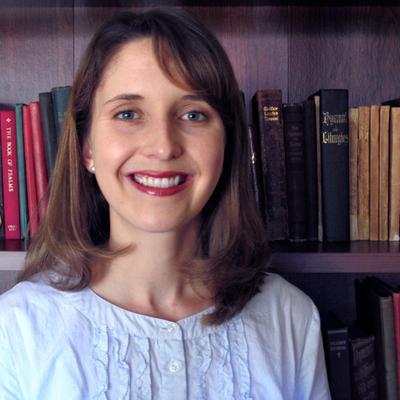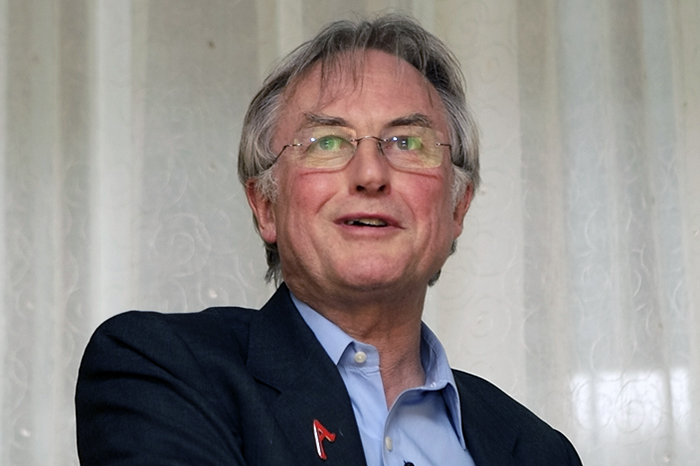前向きな兆候
[toggle]Signs of Hope[/toggle]私の所属機関であるセントアンドリュース大学で最近設立されたロゴス分析神学・解釈学研究所で、共同研究が進められている。この研究所は、体系的な神学、聖書研究、そして哲学の交流を取り入れた神学研究という独自のアプローチを提示している。
[toggle]At my own institution, the University of St Andrews, the recently founded Logos Institute for Analytic and Exegetical Theology is trying to foster this sort of collaboration. The institute offers a unique approach to theological study, bringing systematic theology, biblical study, and philosophy into conversation. [/toggle]その目的は、より広い世界における信仰の大きな問題に取り組むことだ。「神」という言葉はどのような意味を持つのか。この言葉は誰、あるいは何のことを指しているのか。「人間である」とはどういうことか。私たちはイエスについて何を言うことができ、何を言うべきなのか。世界の創造(起源)について、そして世界そのものについてはどうだろうか。伝統的なキリスト教の主張は、和解の理論と実践についてどのような意味を持つだろうか。そして、これらすべてのことについて、どのようにそれを証明することができるだろうか。そこに、キリスト教内のみに専有される知識はあるだろうか。それとも、それは誰にでも参加できるものなのだろうか。
[toggle]The aim is to address the big questions of faith in the wider world. What does the word God mean? Who or what might the word refer to? What does it mean to be human? What can and must we say about Jesus? About creation—about the origin of the world and about the world itself? What do traditional Christian claims about reconciliation actually mean in practice as well as theory? And with all of these: How do we know? Is there a special kind of in-house Christian knowledge, or can anyone join in? [/toggle]最近の体系的神学の多くは、過去の偉大な思想を研究することにより、これらの課題に斜めから入り込もうとしてきた。それは必要なことだ。たとえ部分的に壊れ、なくなったものがあったとしても、私たちは先人から伝えられたものを再び発明することはできない。
[toggle]Much recent systematic theology has come at these questions obliquely by studying the great minds of the past. That is vital. We cannot reinvent the wheels bequeathed to us by older writers, even if some of the axles may be damaged and some spokes missing. [/toggle]聖書の専門家は、「マタイやホセアらが書いたことの本来の意図を解明したら、自分の仕事は完了した」とでも言わんばかりだ。しかし読者からすれば、これら古代の思想が現代のまったく異なる世界で何を意味するのか、疑問に思うことだろう。
[toggle]Equally, biblical specialists sometimes imply that once we have discovered what Matthew, Hosea, or whoever was really saying, we have done our job. This may still leave the reader wondering what these ancient ideas might mean in today’s very different world. [/toggle]もちろん、聖書の権威を信じる人々は、神学者たちが尊敬すべき対象であっても、聖書は別次元の書物だと断言するだろう。しかし、それが何を意味するのかを解明することは大がかりな仕事となる。幸いなことに、多くの著名な学者がこの課題に取り組んでいる。これもまた前向きな兆候だ。
[toggle]Of course, those who believe in the authority of Scripture would affirm that the Bible is on a higher plane than subsequent theologians, however venerable. But to work out what that means requires many minds on the job. Fortunately, we are now seeing many leading scholars addressing this challenge. This is a further sign of hope. [/toggle]
エイミー・ピーラー氏(自身のツイッターから)
たとえばロゴス研究所では、教育や討論の場にオリバー・クリスプ氏、サラ・コークリー氏、トム・マッコール氏、アラン・トランス氏、アンドリュー・トランス氏などの神学者、C・ステファン・エヴァンス氏、エレノア・スタンプ氏、ピーター・ヴァン・インワーゲン氏、リンダ・ザグゼブスキ氏、マイク・リー氏などの哲学神学者、そしてデイビット・モフィット氏、エイミー・ピーラー氏、リチャード・ボウカム氏といった解釈学者を招くことができた。
[toggle]For instance, the Logos Institute has been able to involve in its teaching and discussions theologians like Oliver Crisp, Sarah Coakley, Tom McCall, Alan Torrance, and Andrew Torrance; philosophical theologians such as C. Stephen Evans, Eleonore Stump, Peter van Inwagen, Linda Zagzebski, and Mike Rea; and exegetes such as David Moffitt, Amy Peeler, and Richard Bauckham. [/toggle]これらの学者の間で生まれる対話は、次世代の若手神学者を刺激している。女性もそこでは重要な位置を占めている。教会の歴史の大部分を通して、神学の教えや研究に女性が参加するのを奨励されてこなかったことが思い返される。しかし、ロゴス研究所内には姉妹組織としてロギアが設立されており、クリスタ・マッカーランド氏のリーダーシップのもと、一流の神学論をもって若い女性学者を奨励している。
[toggle]The conversation being generated among these scholars is inspiring a new generation of young theologians. Among them is a significant contingent of women—remembering that women, throughout most of church history, have not been encouraged to participate in theological teaching and research. Under the leadership of Christa McKirland, we’ve established Logia, a sister organization within the Logos Institute, encouraging younger female scholars by modeling top-flight theological engagement. [/toggle]私たちの使命は、聖書やキリスト教神学から、可能な限り明確で厳密、かつ思慮深い方法で、キリスト教信仰の教えていることを正確に理解することだ。そのためには、多様なコミュニティーやさまざまな分野から最上級の研究をそろえる必要がある。そして、そのような研究結果は人生のあらゆる側面と関連して解釈されるべきだし、新しい疑問や昔ながらの疑問を投げかける私たちの間で適切にシェアされるべきだ。
[toggle]Our task, then, is to understand in the clearest, most rigorous and profound ways we can—from the Bible and within Christian theology—what exactly the Christian faith teaches. For this, we need the best thinking from various disciplines, within a diverse community. The results of such study need to be interpreted in relation to all other aspects of life and disseminated appropriately into our often confusing world, which regularly throws up new questions while also circling back to the old ones. [/toggle]3つの分野
[toggle]The Three Disciplines[/toggle]解釈学者、神学者、哲学者が力を合わせて、それぞれの視点から、神、そして世界の大きな課題に取り組むとき、そこには何が見えるだろうか。
[toggle]When exegetes, theologians, and philosophers address the big questions of God and the world through all these lenses together, what happens? [/toggle]聖 書
[toggle]First, the Bible[/toggle]キリスト教神学者や哲学者はしばしば、「自分の思考は聖書に基づいている」と主張する。しかし彼らが聖書を読むとき、現代の聖書研究で当然とされる注意を払うことはめったにない。それは、彼らが聖書について教えられた有益とは言えない知識のせいだとしても、残念なことだ。神学者が聖書と向き合うとき、聖書記者の世界観や元々の意図にほとんど関係性を持たない校正作業のようになってしまうことがよくある。
[toggle]Christian theologians and philosophers regularly claim that their thinking is grounded in Scripture. But they seldom pay the text the kind of close attention expected in contemporary biblical studies. This may owe something to the less than helpful teaching about the Bible that some have received, but it is still regrettable. Theologians’ engagement with Scripture often lapses into proof-texting, with little regard for the authors’ thought-worlds and original intentions. [/toggle]このことがキリスト教神学と哲学に対して、研究者の直観と聖書研究の伝統の一部にすぎないただの憶測への逃げ道を与えている。この方法の不十分さは明らかだ。それは、水道栓からホースを外した後で庭に水をやろうとするのと同じだ。たとえホース内に水が残っていても、それは遠くまで届かない。
[toggle]This can allow Christian theology and philosophy to escape into mere speculation, grounded on nothing more than the researcher’s intuitions and some parts of post-biblical tradition. The inadequacies of this method are obvious: It is like trying to water a garden having first detached the hosepipe from the main tap. There may be some water left in the hose, but it won’t go far. [/toggle]現代の聖書研究界でも、エキサイティングで新しい洞察が神学者や哲学者によって数多く発見され、発展している。私の著作、特にイエスとパウロに関するものは、より大きな神学的問題と直接関連する多くの問題に焦点を当てている。聖書学の専門家になる神学者はほとんどいないが、神学の議論の場において聖書の専門家は必須(ひっす)だ。科学的分野で画期的な発見がされる時と同じように、重要なのは協力的なチームワークだ。
[toggle]Contemporary biblical scholarship has, in fact, produced many exciting new insights that theologians and philosophers could pick up and develop. My own work, especially on Jesus and Paul, focuses on many issues that dovetail directly with larger theological questions. Few theologians will become experts in biblical scholarship, but biblical expertise must take its seat at the theological table. As in ground-breaking scientific research, collaborative teamwork is the name of the game. [/toggle]神 学
[toggle]Theology[/toggle]その逆もまた然(しか)りで、聖書学者も神学者と関わる必要がある。ただ、研究の専門化がこれを困難にしている。聖書の専門家は、自分たちが見ている物事を先史時代の一つの物事として扱おうと神経を尖(とが)らせる。しかし聖書を書いた人々は、それらの書物をただの日記のように遊びで書いていたわけではなく、神の民の啓発や指導のため、信仰と服従をもって書き綴(つづ)ったのだ。優れた歴史学者はそのことを十分に考慮すべきだ。
[toggle]The same is true in reverse: Biblical scholars need to engage with theologians. The demands of specialist study make this difficult. Biblical specialists are often nervous about what they see as ahistorical generalizations. But the biblical writers themselves never intended to provide a mere diary of their own musings. They wrote in faith and obedience, to edify and direct God’s people. Good historical scholarship should take full account of this. [/toggle]そもそも歴史とは、自分たちとは異なる考え方をする人々の心を覗(のぞ)こうとすることだから、私たちは常に共感的な想像力を持とうとしなければならない。(私たちが学ぶことから得る)喜びと知恵の渦(うず)から、しばしば二つの感覚が浮かび上がる。まず、自分たちのものとは違う、その文章が持つ感性。そして、この文章が私たち、また私たちを通した世界に対して何かを訴えかけているという感覚だ。私たちの感情や精神に影響を及ぼす他の出来事と同じように、この芸術と科学のコラボレーションは豊かな経験を与えるものだ。
[toggle]History, after all, involves peering into the minds of people who think differently to ourselves, and that effort always involves sympathetic imagination. From this constant spiral of delight and knowledge there regularly arise both the sense of the text as other than ourselves and the sense of the text as nevertheless addressing us and, through us, our world. As with all such mental and spiritual events, this is a rich combination of art and science. [/toggle]これまでに神学者たちが思想の枠組みを打ち直し、さまざまな細部を微調整しながら、より広い理解のための取り組みをしてきたという事実を、もはや聖書学者は無視することはできない。聖書学によって養われてきた神学は、反対に聖書学に対しても働きかける。それは課題を提起し、前提条件を疑問視し、原文の意図を正確に解釈することを試み、それらすべてを現代の私たちが抱える課題との関連性へと導くのだ。
[toggle]At this point the biblical scholar cannot ignore the fact that the theologians have wrestled with these wider meanings before us, hammering out larger frameworks of ideas and fine-tuning particular points. Theology, itself fed by biblical scholarship, feeds back again into biblical scholarship: raising questions, questioning assumptions, trying to interpret the full implications of original meanings, and seeking to bring all this into dialogue with the major issues of our own day.哲 学
[toggle]Philosophy[/toggle]建設的に宣教に取り組むクリスチャンの思考には、教会という枠を超え、一般社会という枠組みの中でコミュニケーションをする必要がある。哲学者、あるいはより広範囲の「文化批評家」は、キリスト教界が提起する重要な疑問を評価する際、非常に有益な働きをしてくれる。現代の無神論の「4人の騎手」(リチャード・ドーキンス、クリストファー・ヒッチェンズ、ダニエル・デネット、サム・ハリス)が唱えた反論をどう捉えるべきか、クリスチャン哲学者が他の信徒に示したことは、その一つの好例だろう。
[toggle]Constructive, missional Christian thinking needs to communicate beyond the church, within the wider secular world. Here philosophers—and more broadly cultural critics—can render invaluable service in assessing the critical questions raised by Christian claims. A good example is the way in which Christian philosophers have helped believers to address the objections raised by the “four horsemen” of modern atheism (Richard Dawkins, Christopher Hitchens, Daniel Dennett, and Sam Harris). [/toggle]
リチャード・ドーキンス(写真:Mike Cornwell)
現代には、より身近な課題もある。たとえば、他宗教の信仰をどう捉えるか、いま起こっている恐ろしい出来事にどう対処するかなど。また、知識そのものについての疑問もある。誰かが「私の救い主が生きていることを知っている」と引用するとき、それはどのような種類の知識で、どう説明できるものだろうか。クリスチャンの哲学者はキリスト教神学の解説法を確立させ、神学者が探求を続けるための新たな展望を開くことにすばらしい功績を残した。
[toggle]There are also the familiar modern challenges: What can we say about other faiths, for example, and how do we address the ongoing problem of evil? Then there are questions of knowledge itself: When someone quotes “I know that my Redeemer liveth,” what sort of knowledge is this, and can it be justified? Christian philosophers have done spectacular work in establishing the unparalleled explanatory power of Christian theism and in opening fresh vistas for theologians to explore. [/toggle]要するに、これら3つの分野はそれぞれ、キリスト教思想の使命において果たすべき重要な役割を担っている。クリスチャン信仰の核心にある真実の主張に対して私たちが忠実かつ責任を持って取り組むのであれば、より多くの女性と男性が分野間の学術的対話を求めることが重要だ。焦点をしぼった厳密な研究は依然として重要だが、専門性の高度化が学術の孤立へと変化することは、現代の神学的議論にとってつまずきとなる。教会のためにこの変化が起こることが私の願いだ。
[toggle]In short, each of these three disciplines has a vital role to play in the vocation of Christian thought. If we are to engage faithfully and responsibly with the truth claims at the heart of Christian faith, it is crucial that more women and men pursue the interdisciplinary conversation between fields. Sharply focused study remains vital, but contemporary theological discussion is seriously hindered when specialization turns into isolation. For the sake of the church, it is my hope that this can change. [/toggle]執筆者のN・T・ライトは、スコットランドのセントアンドリュース大学のセントメアリーズ大学で新約聖書、初期キリスト教学の教授。彼の最新書籍は『パウロ──伝記』(2018年)。
[toggle]N. T. Wright is professor of New Testament and early Christianity at St Mary’s College in the University of St Andrews in Scotland. His latest book is Paul: A Biography (HarperOne, 2018). [/toggle]本記事は「クリスチャニティー・トゥデイ」(米国)より翻訳、転載しました。翻訳にあたって、多少の省略をしています。
出典URL:https://www.christianitytoday.com/ct/2019/april/n-t-wright-theology-of-future.html
